Exclusive: Turkish investors flourish in Kazakhstan’s growing economy
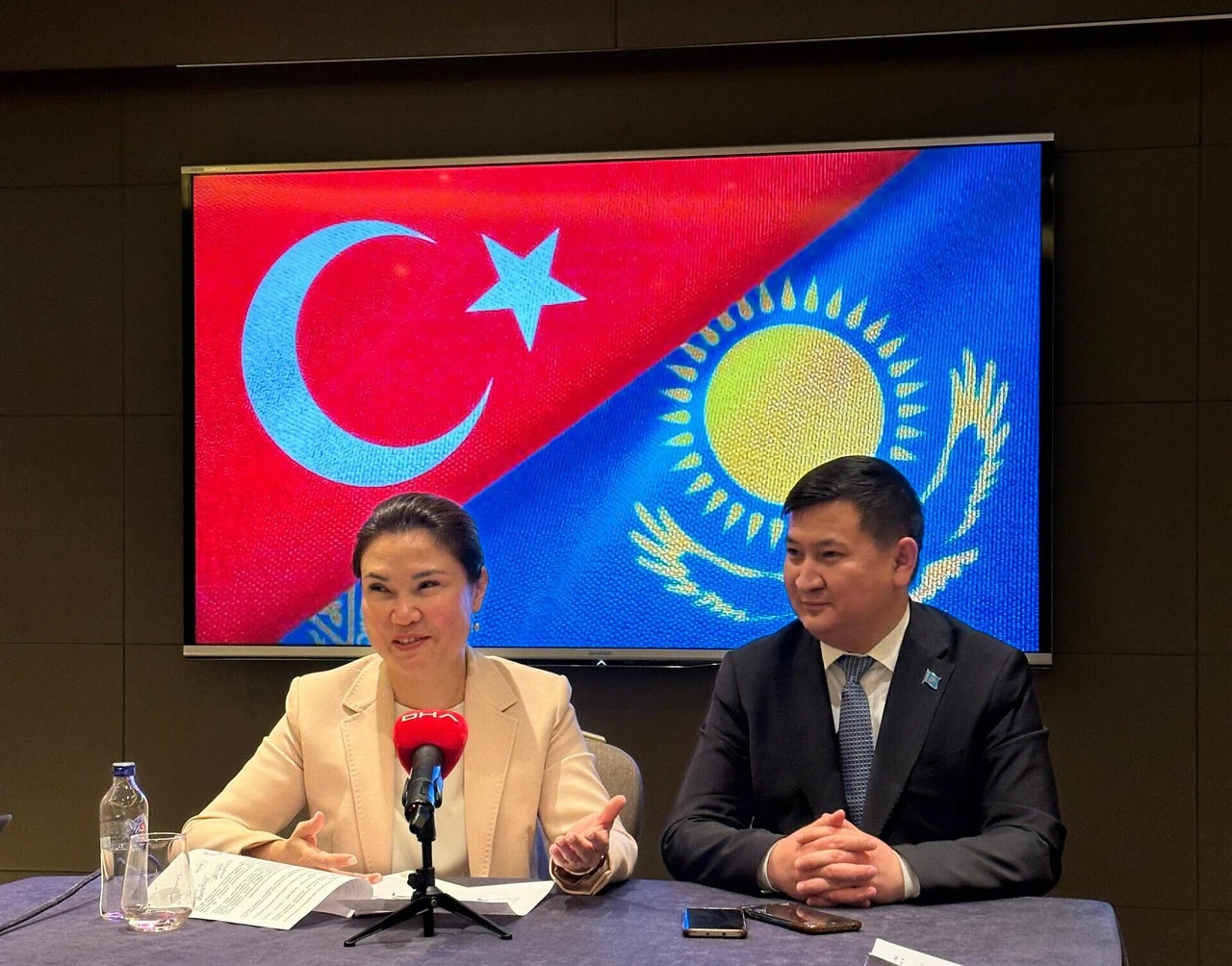 Kazakhstan's Deputy Minister of Foreign Affairs Nazira Nurbayeva (left) and Consul General of the Republic of Kazakhstan in Istanbul Nuriddin Amankul (right)
Kazakhstan's Deputy Minister of Foreign Affairs Nazira Nurbayeva (left) and Consul General of the Republic of Kazakhstan in Istanbul Nuriddin Amankul (right)
In a three-day meeting held in Beyoglu, Kazakhstan’s Deputy Minister of Foreign Affairs Nazira Nurbayeva, Consul General Nuriddin Amankul and executives from 35 leading Turkish companies discussed ways to strengthen investment relations between the two countries.
Answering the questions of Türkiye Today, Nurbayeva highlighted the importance of the Middle Corridor project in facilitating trade between Kazakhstan and Türkiye. The project aims to create a new trade route connecting China, Central Asia, and Europe, bypassing Russia. Nurbayeva emphasized the incentives offered to Turkish companies to participate in the project.
The Deputy Minister expressed optimism about the future of commercial cooperation between the two nations, suggesting new projects are on the horizon.
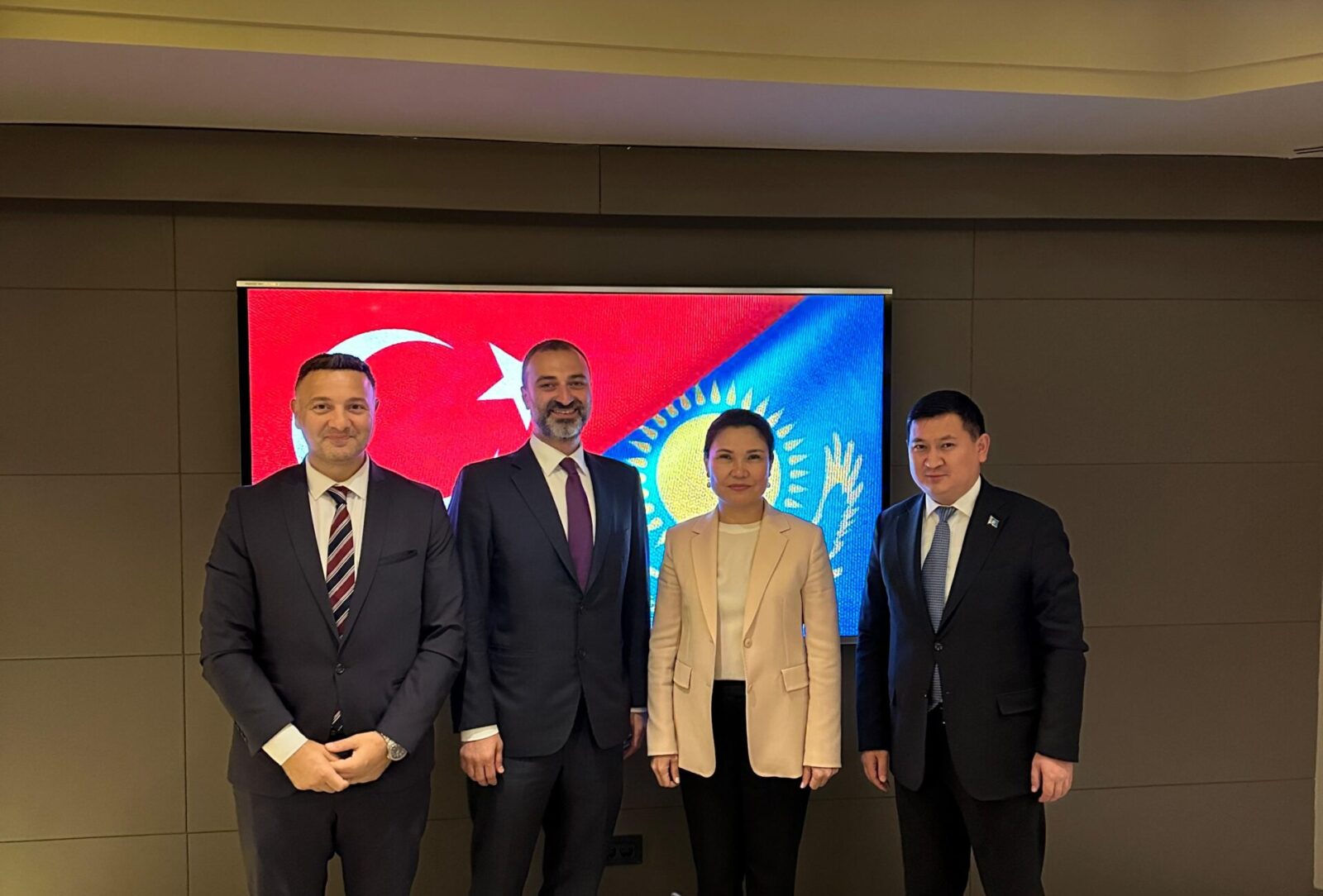
How crucial is Kazakhstan’s role in the Middle Corridor project, and could this initiative evolve into a modern Silk Road?
The Middle Corridor initiative, with Kazakhstan as its driving force, has the potential to emerge as a modern Silk Road project. Kazakhstan, with its strategic location and robust infrastructure, is playing a pivotal role in this initiative. Regarding transport and logistics, the corridor is becoming the most essential alternative route providing uninterrupted and fast cargo delivery between Asia and Europe, as fewer routes are available due to the tremulous situation in the region. Through the Caspian Sea, we can access the countries of the Middle East, the Caucasus, and, as a result, Europe.
Kazakhstan is striving to connect the Trans-Caspian International Transport Route with trans-European transport networks, and we are working to reduce transit time to 10 days, strengthening transport and logistics potential. Over the past 15 years, we have invested more than $35 billion in transit infrastructure. For comparison, it takes 40-45 days to deliver goods from China to Europe by sea, which is also more dangerous and high-stake. The average time for the corridor is 14 days, and we strive to reduce the transit time to 10 days by removing customs barriers and other things.
Culturally speaking, the Corridor allows a more strategic and tight partnership between the Turkic-speaking states. Historically, the Silk Road facilitated both trade and cultural and technological exchanges. The Middle Corridor can similarly promote cultural and economic exchanges, fostering a modern version of the Silk Road. It will positively impact business activity growth and cultural and humanitarian ties, increase trade and expand investment cooperation between brother countries. This is especially important given the existing context of the Organization of Turkic States (OTS), whose primary objective is to foster comprehensive collaboration between us.
Constructed on four main pillars of shared history, common language, common identity, and common culture, the OTS does not limit itself to the confines of these commonalities. Instead, it aims to broaden the existing bilateral cooperation areas such as economy, science, education, transportation, customs, tourism, and other fields among the Member States into multilateral cooperation for the region’s benefit. Thus, the Corridor could not just become, but significantly contribute to the new Silk Road or breathe new life into it.
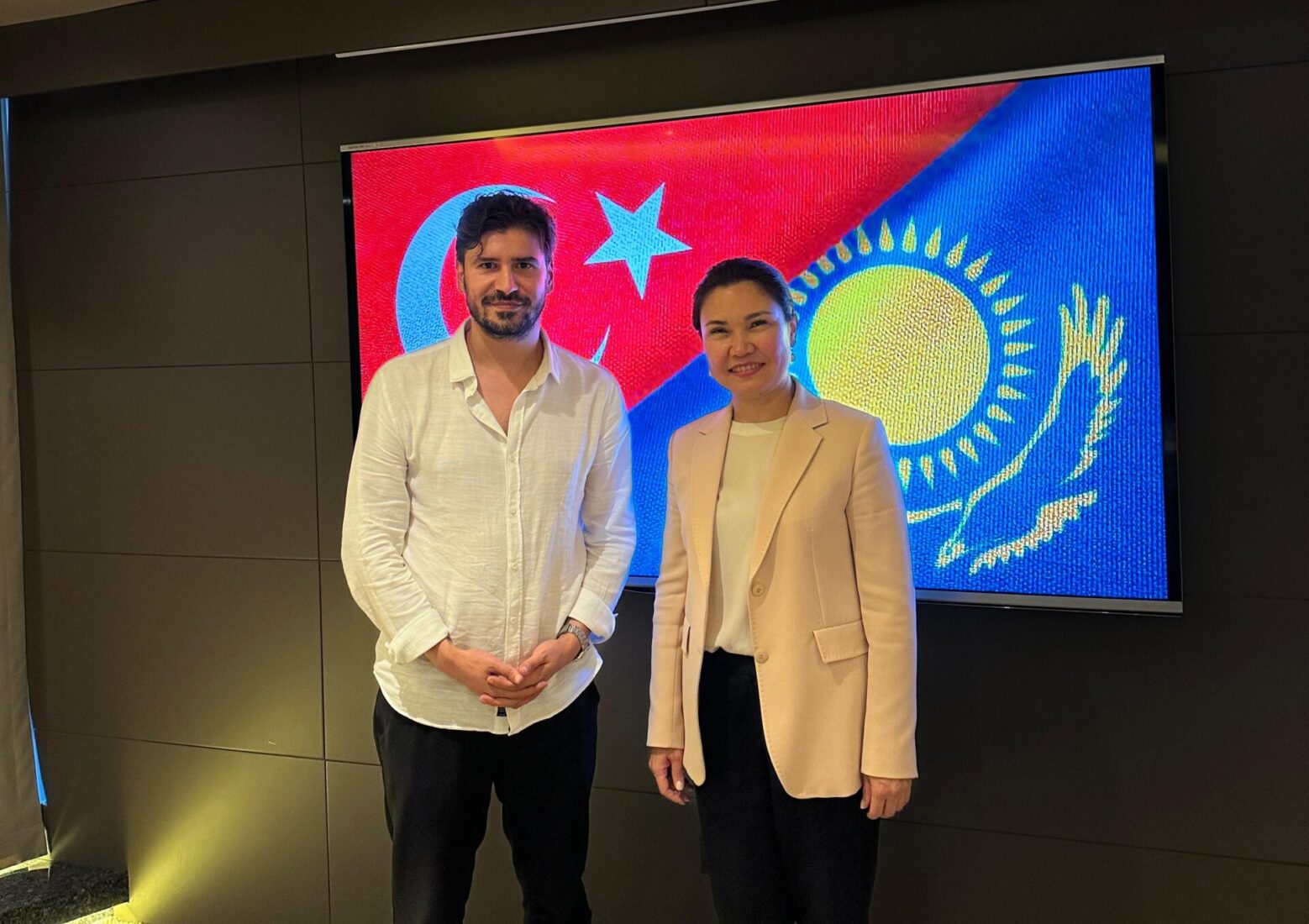
Kazakhstan and Türkiye have set a goal to increase trade volume to $10 billion. Do you consider this goal realistic, and what steps are being taken to achieve it?
Türkiye is one of Kazakhstan’s most important trade and economic partners and is among the top five in terms of trade turnover. By the end of 2023, the trade turnover between Türkiye and Kazakhstan amounted to about $6 billion.
Türkiye supplies Kazakhstan with $2 billion worth of goods – clothes and shoes, various equipment, electronics and household appliances, and medicines. In turn, Kazakhstan’s exports to Türkiye amount to $4 billion, most of which are commodities: oil and petroleum products, copper, unprocessed metals, and wheat.
However, we believe a number of high-value goods have export potential. These include various types of rolled metal, sunflower oil, confectionery, and batteries. Moreover, work is underway to eliminate non-tariff barriers to Kazakh agricultural products’ access to the Turkish market. Recently, Turkish colleagues lifted the ban on the meat supply, and issues on phytosanitary requirements are being worked out.
The issue of logistics remains extremely important – Türkiye is both the final destination for Kazakh products and a transit zone for supplies to European markets. Therefore, we are committed to continuing to develop our cooperation in the field of transport, which is crucial for the future of our economic relations.
In this regard, increasing trade volume to $10 billion seems to be a realistic goal.
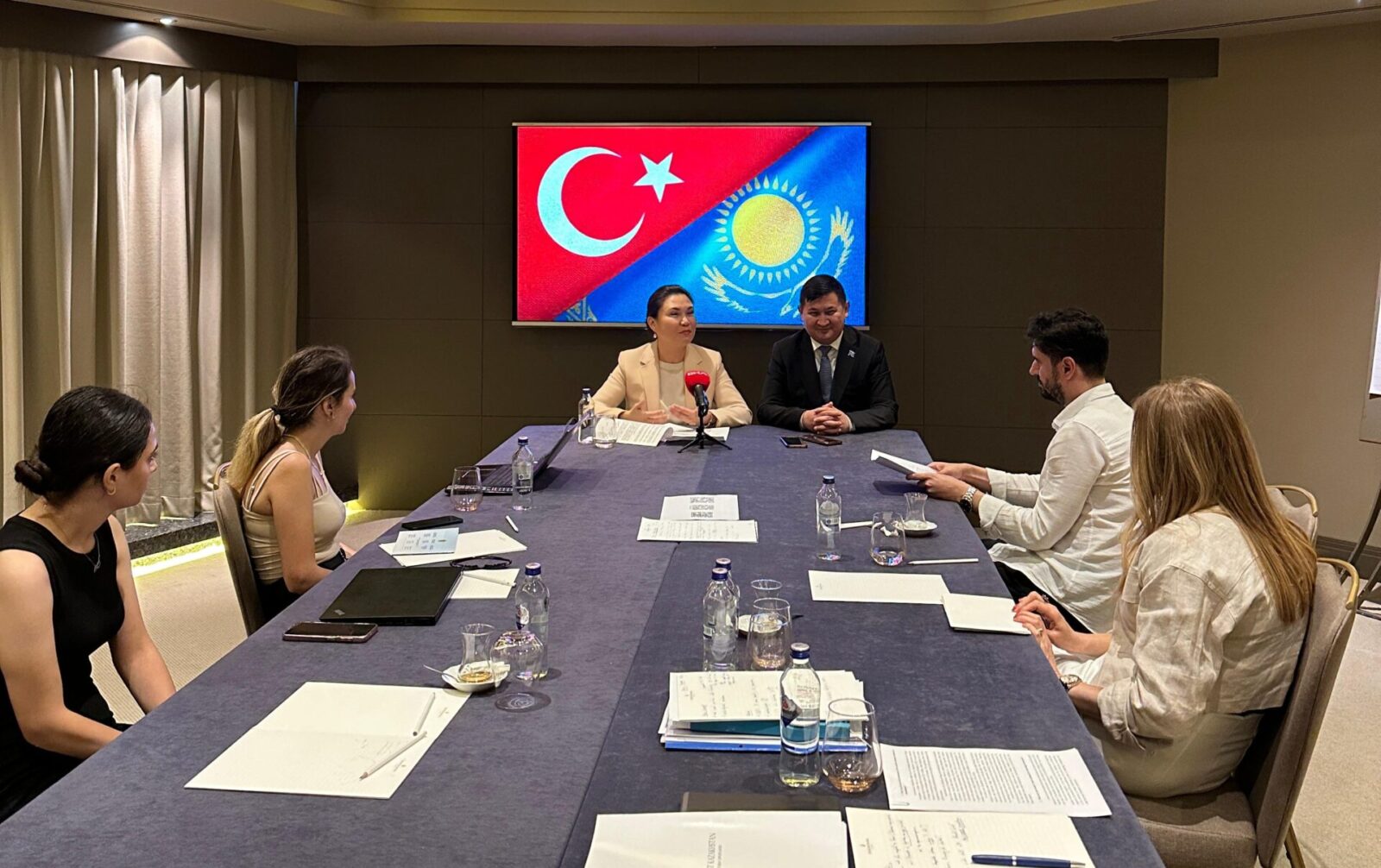
In your opinion, how will the investment environment of Kazakhstan change in the next 10 years?
On May 8 of this year, our president signed a momentous decree paving the way for significant liberalization of our national economy. To preserve Kazakhstan as a critical regional investment center, we have launched a new investment cycle, setting a strategic goal to attract $150 billion in foreign direct investment by 2029. This ambitious goal underscores our unwavering commitment to economic growth and liberalization.
On behalf of the head of state, the activities of the Investment Headquarters have been completely reformatted. One of the main tasks is solving problematic investment project issues. Under the active leadership of the government, the Investment Headquarters now makes all decisions binding on government agencies and national companies. Specific cases of domestic and foreign investors are considered at the headquarters meetings, demonstrating a commitment to a quick and effective solution to investor issues.
Kazakhstan is implementing the Green Corridor system to improve service support for investment projects with the participation of large investors, including those from the Fortune 2000 list, for $10 million. This system simplifies and speeds up the process of investors obtaining permits, including land plots and communications. Investor-related decisions and restrictions will be scrutinized to protect investors from unreasonable fines, taxes, and lengthy litigation.
In addition, the government is developing a National Digital Investment Platform. Currently, this platform is in pilot mode and will facilitate the monitoring and implementation of investment projects by region and the streamlining of requests for investment support measures.
We are also working on organizing seminars in the regions of Kazakhstan, where we explain the current business support measures and collect investors’ opinions on what work needs to be done to make the business feel comfortable. All our reforms are aimed at business. Our ambitious goals can be achieved only with synergy between government and industry. In this regard, we expect positive growth in attracting investments to the country.
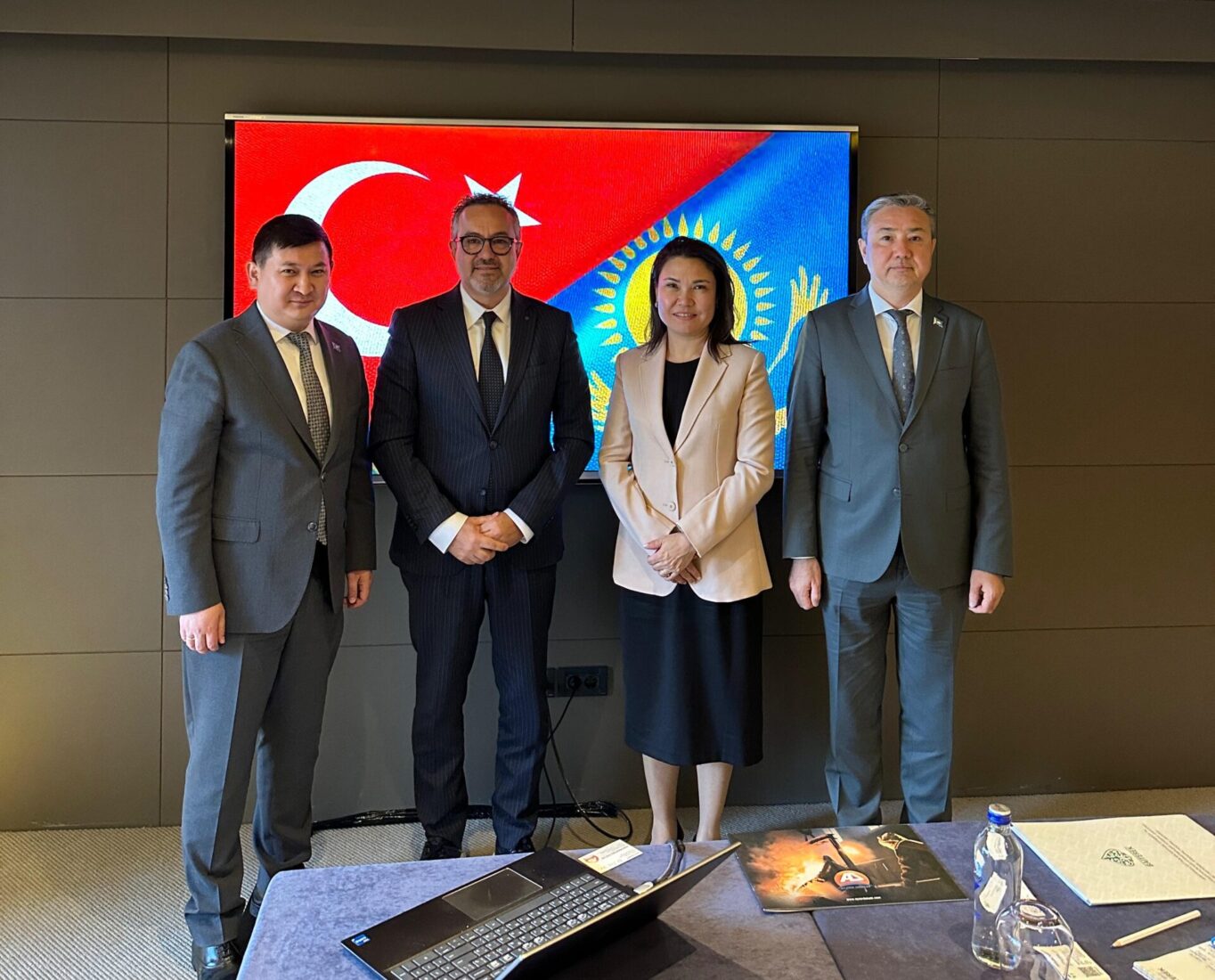
What incentives are available for Turkish investors in Kazakhstan given the increasing presence of Turkish companies in the region?
Kazakhstan offers investors various government support measures, including tax and customs preferences and advisory support through KAZAKH INVEST.
Preference packages vary only depending on the nature of the investment. Thus, different packages of tax preferences are provided for investment contracts, special investment contracts, investment priority projects, and investment agreements. Free economic zone participants, owners of vacant warehouses, and legal entities with agreements on the industrial assembly of motor vehicles.
The Investment Committee of the Ministry of Foreign Affairs is making significant progress, annually concluding more than 70 investment contracts with private investors, demonstrating a stable and attractive investment climate in the country.
For all investments, there is an exemption from customs duties and value-added tax on imports of raw materials and/or materials for five years for producing finished products and state in-kind grants. The maximum amount of a state in-kind grant under an investment contract is at most 30% of the volume of investments in fixed assets of a legal entity of the Republic of Kazakhstan. When creating new production facilities within the framework of investment priority projects, exemption from corporate income tax and land tax for 10 years and property tax for eight years is provided; when expanding and/or updating existing production facilities, exemption from corporate income tax for three years.
The key initiative is the Investment Agreement, which has received significant support among new investors. This agreement, designed for large projects worth more than $60 million, guarantees tax stability for up to 25 years and provides tax preferences in exchange for investments and social obligations. Four agreements were signed last year, and this year, more than 14 applications were received, which indicates a promising future for investments in Kazakhstan.
One of the priority sectors is agriculture. Agriculture and the food industry are among the most critical sectors of the economy, accounting for more than 7% of the country’s domestic value added. The industry benefits from natural compliance with global environmental protection and food safety requirements – Kazakhstan ranks first in the world regarding the lowest level of chemical use in crop production (only 0.1 tons per hectare of acreage).
Today, as part of implementing the investment policy, our country pays special attention to industries with existing potential that are sources of the Republic of Kazakhstan’s competitive advantages in the short and medium term: labor productivity growth, increasing the volume and complexity of exports, and phased localization of production.
A promising area is the deep processing of grain. Kazakhstan annually harvests 16 million tons to 17 million tons of wheat, of which 5 million to 6 million tons are exported. Thanks to the deep processing of grain, we could produce products with high added value. More than 260 different types of products can be made from grain. These are food additives, vitamins, and other products used in the pharmaceutical, food, and cosmetic industries. Other promising areas are animal husbandry, milk processing, growing vegetables, fruits, berries, greenhouse crops, etc.
For such projects, we aim to create a production with high added value due to deep processing. Kazakhstan must maintain a diversified portfolio of direct investments to avoid excessive dependence on any source. By increasing the volume and quality of foreign investments, we strive to achieve Kazakhstan’s economic development goals, particularly attracting investments from countries with high per capita incomes.



